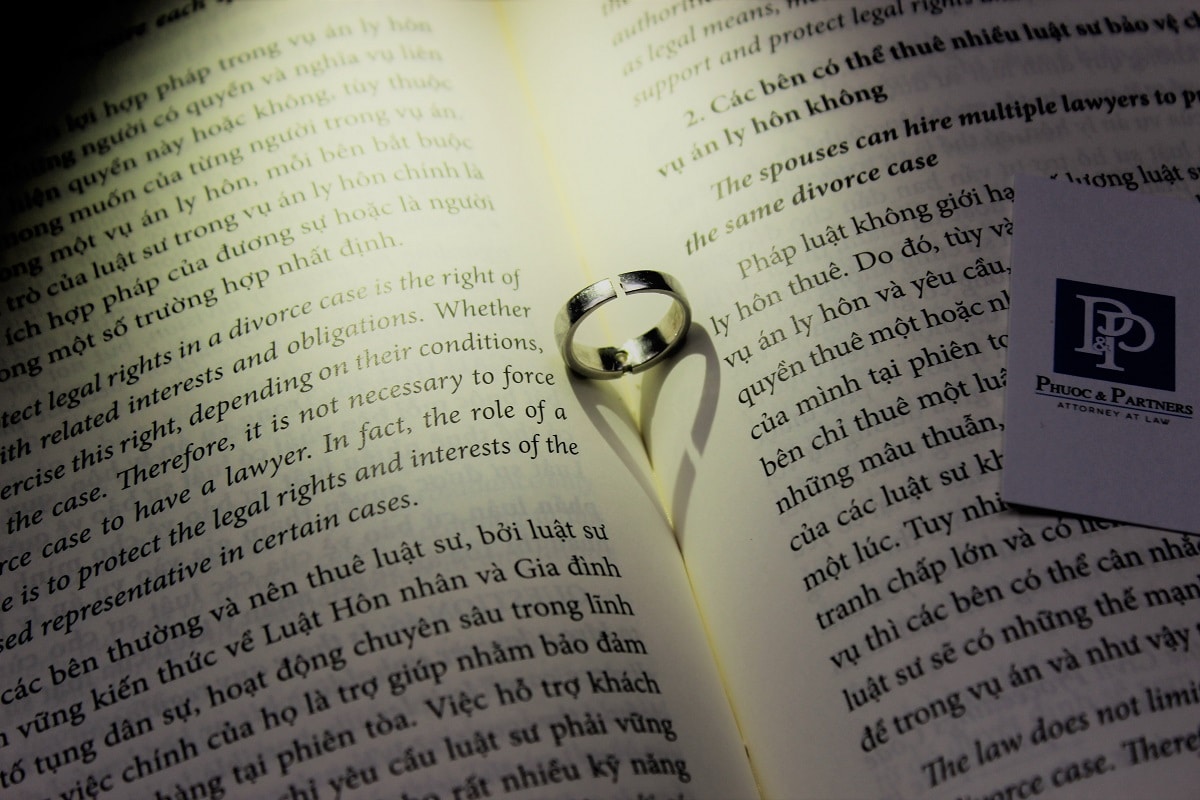According to the provisions of law, as soon as the Court judgement or decision resolving a divorce case takes legal effect, the marriage will be terminated. Relations of the common properties of the spouses also are modified according to the Court’s decision, including real estate which is the house where both spouses live.
However, in practice, there are many cases where after the Court’s judgements, when the decisions take effect and that the previous place of residence of the spouses was assigned to one spouse, the money receiving spouse struggles to find a suitable place to move to, and consequently requests to stay in the house which was assigned to the other spouse for a certain period of time. The Law on Marriage and Family 2014 was developed and codified harmoniously between the management principle of the State and the element of ethical and cultural factors from the Vietnamese people. As a result, there are specific regulations to facilitate the conditions of the people without residence after divorce, for him or her to have time to find a new stable accommodation.
Specifically, Article 63 of the Law on Marriage and Family 2014 offers the right to stay at the spouses’ house after divorce, if either spouse has issues with accommodation. This means that if there is no house under private ownership or the spouse has not yet been able to find a suitable place to live, he or she shall have the right to stay at the house which is the shared accommodation of the spouses for a duration of 06 months. The spouses are free to find an arrangement on this matter, however in case the spouses do not reach an agreement, the duration of stay shall be determined based on the above provision. This 06-month term is the reasonable time to find suitable accommodation. The provision only sets out the case of real estate which is privately owned by a spouse without any ties to the house being common properties of the spouses divided after divorce. However, from the views of the authors, in Article 63 of the Law above, in the case of the common properties of the spouses, after the division it remains the private properties of a spouse. Therefore, it can be seen that both scenarios have similarities: the first is the time of the need for the right to stay is after divorce, and the second is that two cases have the same nature as private properties. Moreover, the law also protects the rights of non-owner, in this case, regulations on the protection of the ex-owner of the house shall apply. It can be understood as a humanitarian right, according to Vietnamese customs and traditions i.e.. love comes and goes but the relationship still stays.
In addition, the Law on Marriage and Family 2014 does not provide further guidance or clarification on the right to stay and on the costs arising from this right. Therefore, in the humanitarian mentality and in the respect of the spouses’ agreement, the payment of living expenses such as electricity, water and sanitation will be agreed upon by the spouses. If no agreement is reached and that a dispute arises, it shall be based on the applicable circumstances of the Civil Proceedings Code or other relevant laws to resolve the case.
If you would like more information on how we can assist you with divorce issues, please contact us at: +84 (28) 36223522 or email us at info@phuoc-partner.com

